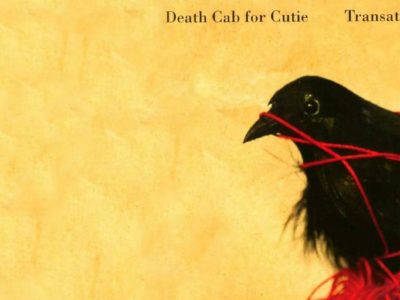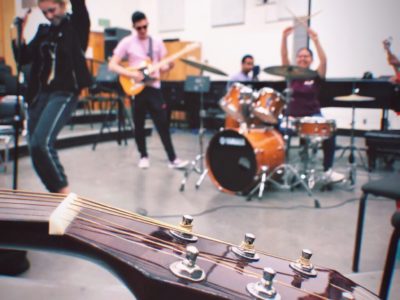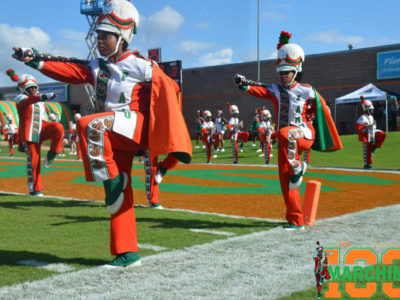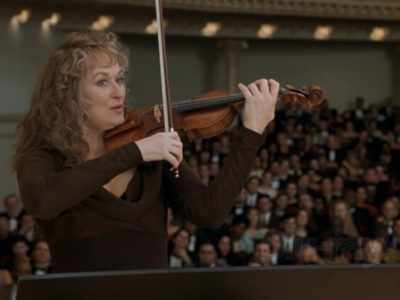As someone who marks nostalgia as her primary emotion, Death Cab For Cutie’s latest album, Thank You For Today, should have evoked… something. If your first-ever favorite band released an album seven years after you discovered them while working on a ninth grade English project in your school’s linoleum-floored computer lab, wouldn’t you count down the days until its August 17, 2018 release?
I kept track of the singles leading up to the album (the band’s first release since Kintsugi, which phased out guitarist Chris Walla for the last time), and as those singles underwhelmed me one by one, my anticipation slowly faded. That didn’t stop me from binging the whole album when NPR released it a day early on August 16. But by the time the band played “60 & Punk’s” final exhausted piano notes, I could tangibly feel my lack of emotional reaction. As Gibbard sang himself on the 2003 album Transatlanticism, “there’s a lack of color here.”
Thank You For Today’s title track, “I Dreamt We Spoke Again,” serves as the album’s eerie guidepost.
In an apathetic tone, Gibbard recounts a dream: “I dreamt we spoke, I dreamt we spoke again./ But when I awoke, when I awoke I could not remember anything you said.” They wanted these lyrics to feel relatable to someone looking back on a relationship that once wrecked them, but “it’d been so long” since it ended that their “mind filled in the blanks” of what the relationship once was. The distance between Gibbard’s voice and the microphone continues throughout the album, giving every track the lack of clarity one has when recalling an old memory.
Death Cab for Cutie’s lyrics got me through my first crush, my first love and my first heartbreak. And now perhaps they’re aiming to get me through the time that comes many years post breakup: the aftermath after the aftermath. How do you think about your first crush when you’ve married your soulmate? The friend who died of childhood cancer when your parents have now been diagnosed themselves? How does Death Cab think of “Photobooth” and “What Sarah Said” a decade later?
In Thank You For Today, Gibbard dwells on the band’s past melodramatic themes and asks us if we’ve been doing the same over the past decade. Can we look back on intense experiences years later with the same intensity we felt during, and just after, experiencing them? I’m not sure I can, and I’m not sure if that’s a good thing or not.
Although these new lyrics are relatable, the feeling they relate to is apathy. It’s almost as though Thank You For Today itself is nostalgic for a time that not only the listeners, but also Death Cab as a band, felt more.
In “Summer Years,” the album’s second track, Gibbard belts, “Sometimes I wake at night/ And watch the rain fall/ Through the streetlights” but it sounds like sarcasm. With a tune so similar to “We Laugh Indoors” from The Photo Album in 2001, the song satirically harkens back to a time of emotional excess in Death Cab’s history (aka, the theme of most of Death Cab’s songs before this album). But “Summer Years” goes on to create a similar theme of decreasing nostalgia as “I Dreamt We Spoke Again” does, with the following line being: “As you’re standing still in my mind/ Fading out, waving goodbye.”
Death Cab has already told stories in past tense before (think “We Looked Like Giants”) and they’ve done it well. But this album marks the first time Gibbard dives into what happens after the past tense.
“You Moved Away,” with Gibbard drawing out every line’s last word for a split second too long, tells the story of someone who the narrator doesn’t even keep in touch with anymore moving away. “60 & Punk” musically plays out an already played out musician. The album asks us, and perhaps the band itself, the same question: After you’ve healed looked back at an event, what’s left? What’s next?
On one hand, the album gives us a break to not feel as much as we did in The Photo Album’s era. In a time period when turning on the news to a school shooting feels as commonplace as watching the weather report, it doesn’t particularly seem possible to emote that deeply anymore. And in a more personal sense, after loving so hard as teenagers that millions of us actually had the nerve to record YouTube covers of “I Will Follow You Into The Dark” for our (now long-lost) high school sweethearts, feeling feels dangerous.
Thank You For Today implies that Death Cab might be shying away from their more melodramatic past, too. We don’t have to feel as many emotions when we look back on songs like “Soul Meets Body” and “What Sarah Said” as the product of over dramatic youth.
But still, I can’t shake the feeling that we’re missing something now that we had back then….
I hope that level of depth isn’t something we should strive for, but as I said before, the fact that Death Cab now lacks the raw flair they once had makes me sad. But for now, I’ll keep dancing around my apartment to “Styrofoam Plates,” finding peace in new sympathy for my old, empathetic self.



















